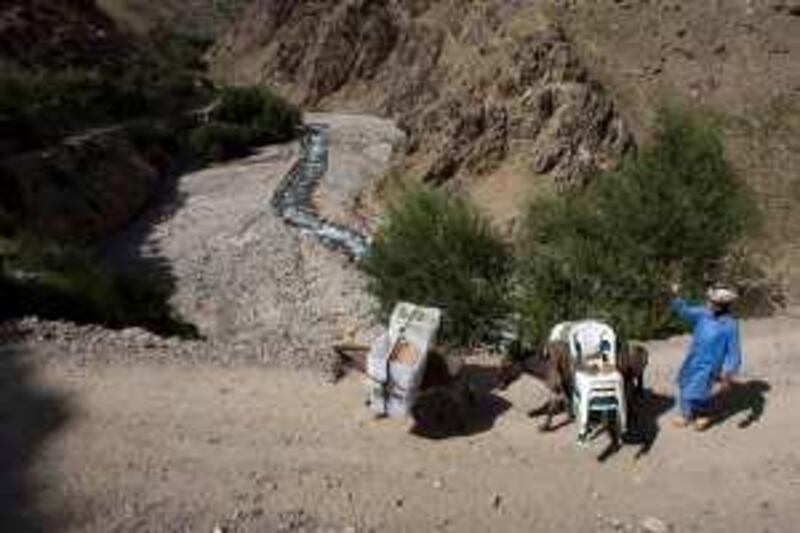GHAZNI // When Afghans go to the polls this week, they will not only be voting for their next president, but also for provincial council candidates, who claim their role in the political process is being marginalised.
"The people who are standing cannot campaign in the areas where security is bad. They cannot introduce themselves to the population and that is a very serious problem in this country," said Ahmad Ali Nasiri, a councillor in Ghazni province, which lies a couple of hours south of Kabul. Afghanistan's political system includes a central government, two houses of parliament, provincial governors and district governors. Added to that is the traditional network of tribal elders and religious leaders who usually have more influence over local communities than any of these.
Often the councillors do not even understand where they are meant to fit into this mix. Mr Nasiri successfully stood for election in 2005 but has decided against running this time around. He believes the role has become pointless because neither officials nor the public listen to what members have to say. "People don't know what the job of a provincial councillor is. For example, they ask us why we haven't made a bridge for them, but this is not our job. Our job is that if the government has a problem it should tell the people through us. And if the people have a problem with the government, they should do the same," he said.
Ghazni, like so much of Afghanistan it is in dire need of the kind of help men such as Mr Nasiri are meant to offer. Security has deteriorated rapidly over the past three years, with the Taliban controlling huge parts of the countryside here. There has also been little in the way of reconstruction. The gap between the government and residents has inevitably grown, but it seems the newly elected provincial council will struggle to ease that divide.
Campaigning in much of the province is virtually impossible because of violence and intimidation. Earlier this summer a candidate was kidnapped while travelling to Ghazni from Kabul. A week later his dead body was found dumped in neighbouring Maidan Wardak province. "If a candidate wants to go to Andar or Giro districts they should have a minimum of 10 to 15 pickup vehicles with 70, 80 or 100 police," said Mr Nasiri.
His concerns about security, public discontent and the role of councillors are shared even among those who have decided to run for office. Abdul Nabi Dakan Khil, the head of the Ghazni provincial council, admitted many of his colleagues had become so disillusioned with their positions they had opted not to stand again. At one stage the council offices were even closed for six months because members felt they were being ignored by the local government.
"We informed the president and ministers, but they also didn't care," he said. If that was not bad enough, Mr Khil's work and his re-election campaign is now severely hampered by the bloodshed engulfing much of the province. "When I first got this position I brought my family to the city. After that I was able to go to my home district once by helicopter. Now I can't go there at all. There is no security even here in the city," he said.
"The first time we got lots of votes and the election was clear, but this time it won't be. Myself and the others can just campaign in the centre of Ghazni city, not in the villages." About 7,000 voting stations are due to be open nationwide on Thursday, but as many as 700 of them could be closed because of security fears. More than 3,000 candidates are competing for just 420 seats in Afghanistan's provincial councils. Initial results are due to be announced on or around September 3.
Two seats per council must be reserved for female members and Fawzia Kakar hopes she will be one of those chosen in Ghazni. The mother of five works for the ministry of women's affairs in the city and she insisted she was not scared of the Taliban, even though her words suggested otherwise. "We can't say they are our enemies. They are our brothers and they joined [the insurgency] because they are poor," she said.
"What they say about women is correct. Women should look after their hijab Islami. When they have done this and they know about their Islamic rights, then their problems will be solved." skarim@thenational.ae






